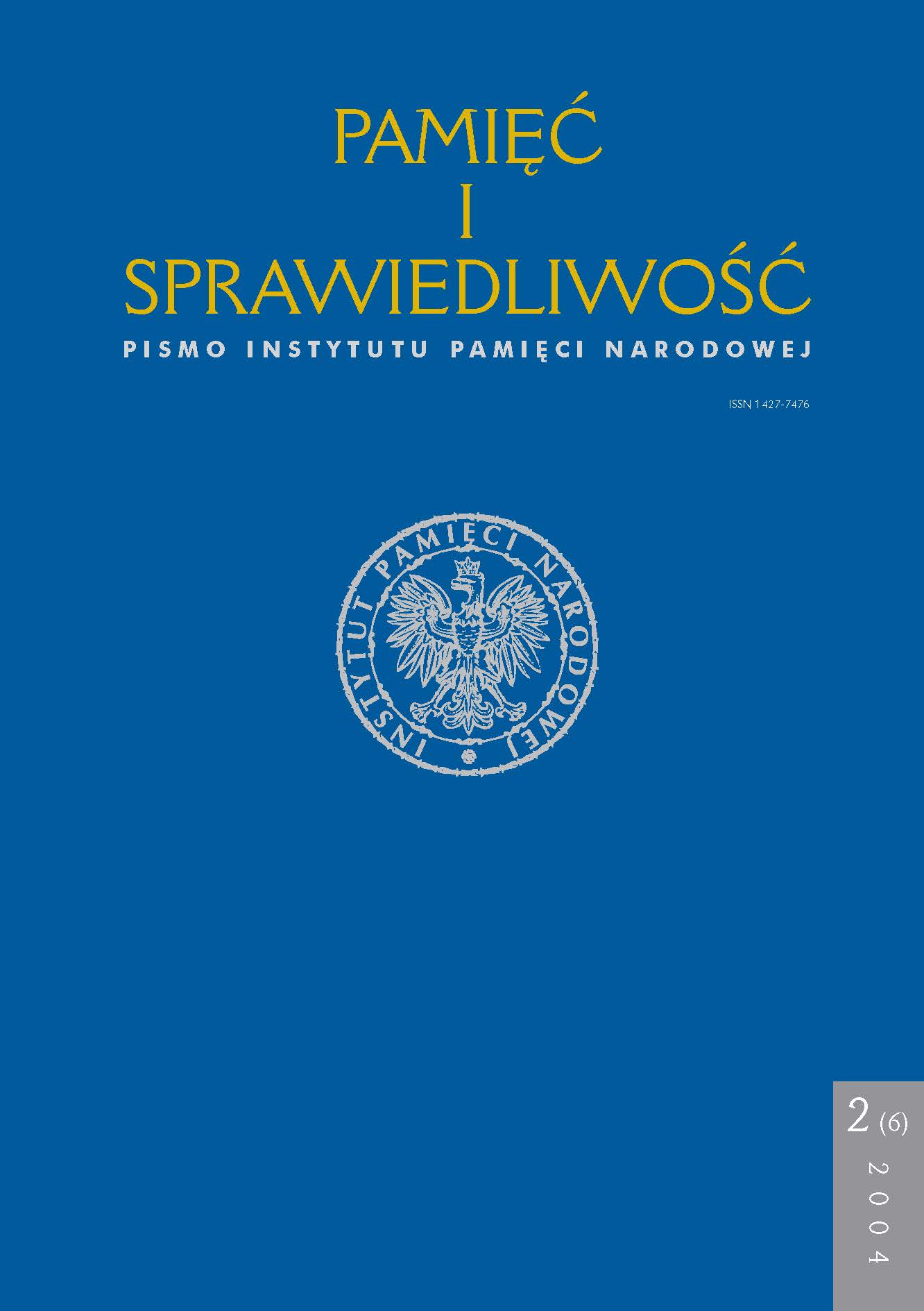Niemiecka polityka narodowościowa na Górnym Śląsku (1939–1945)
Pamięć i Sprawiedliwość, Vol. 6 No 2 (2004), pages: 115-138
Publication date: 2004-12-30
Résumé
The author of the article is trying to analyze the policy concerning nations during WW II in Upper Silesia, or, to be more precise, in the area included into Upper Silesian province by the Third Reich. The main elements of the policy were: classification of residents
based on nation and race criteria (made by the police census in 1939 and within so called German National List (Deutsche Volksliste) in 1941–1945), displacement of Poles, settling down Germans from the territory of the USSR and extermination of Jews. The nationality policy in Upper Silesia was different than in other Polish areas included into Reich. The reason for it was usually seen in the different economic conditions and the necessity to keep qualified manpower essential in Silesian heavy industry. In some historical researches it has also been noticed, although less explicitly, that nationality policy of local German elites was also consciously different. It seems that gauleiter Josef Wagner, as well as his successor at the post, Fritz Bracht, saw the necessity to exclude Silesian people from qualification made only on the basis of race criteria which were emphasized by Heinrich Himmler when he was a Reich commissar for strengthening the Germanity. Fritz and Bracht used also political criteria, which made the situation similar to Pomerania and western areas included into Reich (e.g. Alsace and Lorraine). It resulted in comparatively low (when compared to demographic potential of Upper Silesia) number of displacements and in accepting the rule that majority of Upper Silesians could gain German citizenship, although their rights were limited compared to other German citizens. Those differences were underestimated after the end of the war by new communist Polish authorities, the representatives of which knew little about them. After 1945 Upper Silesians were treated suspiciously by Polish communist authorities and their loyalty towards Poland was questioned. Consequently in the fifties the area was acknowledged as
endangered with so called revisionism.
Articles les plus lus par le même auteur ou la même autrice
- Ryszard Kaczmarek, Czy potrzebna jest nowa synteza okupacji niemieckiej w Polsce? Rozważania w 55. rocznicę publikacji pracy prof. Czesława Madajczyka , Pamięć i Sprawiedliwość: Vol. 45 No 1 (2025)
- Andrzej Gąsiorowski, Ryszard Kaczmarek, Sebastian Piątkowski, Klaus Ziemer, [Dyskusja] Okupacja niemiecka ziem polskich (1939–1945) w historiografii polskiej i niemieckiej , Pamięć i Sprawiedliwość: Vol. 14 No 1 (2009)
- Ryszard Kaczmarek, Kolaboracja na terenach wcielonych do Rzeszy Niemieckiej , Pamięć i Sprawiedliwość: Vol. 12 No 1 (2008)
 Język Polski
Język Polski
 English
English
 Deutsch
Deutsch
 Français (France)
Français (France)
 Italiano
Italiano
 Русский
Русский


 PDF (Język Polski)
PDF (Język Polski)
